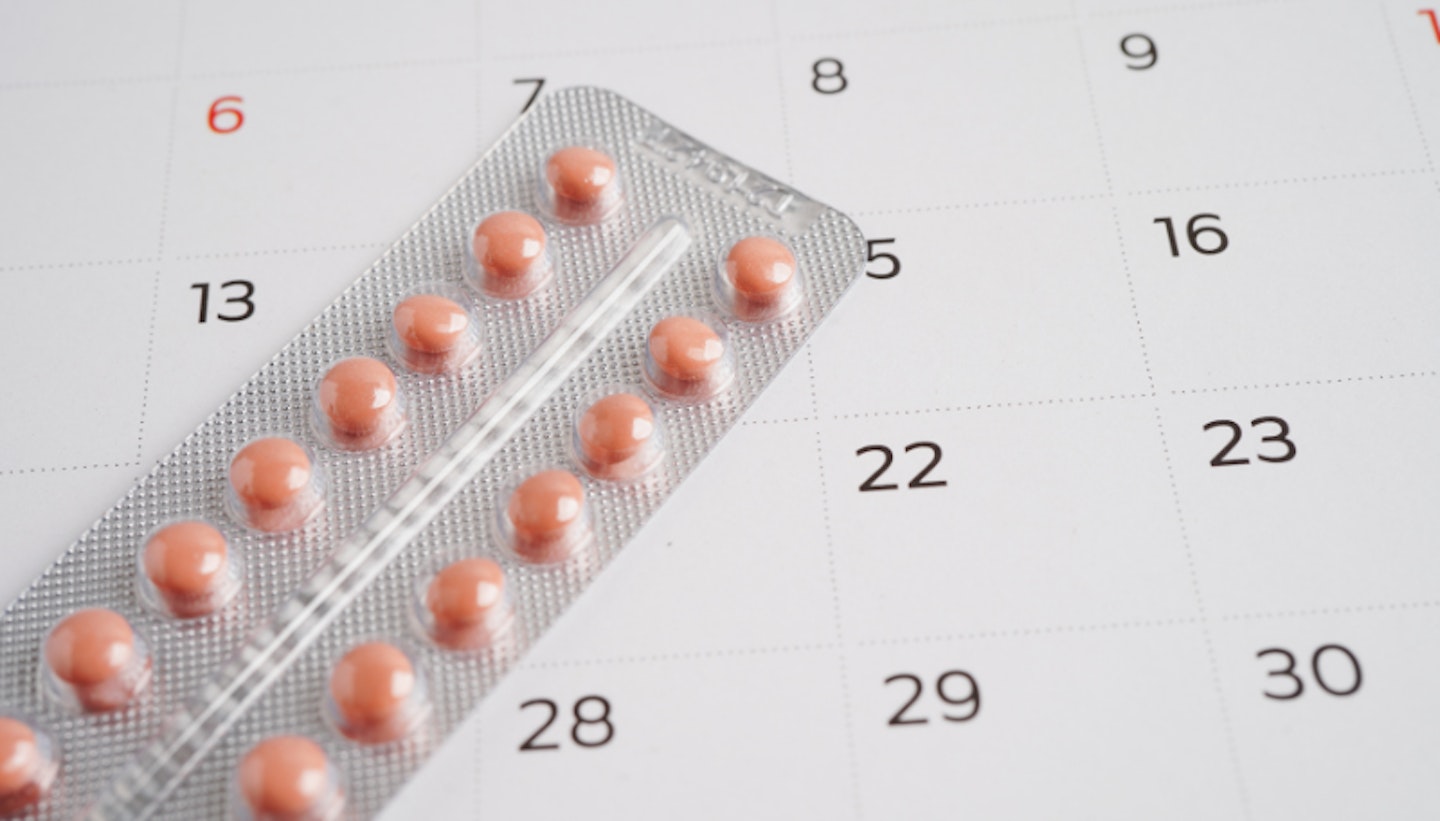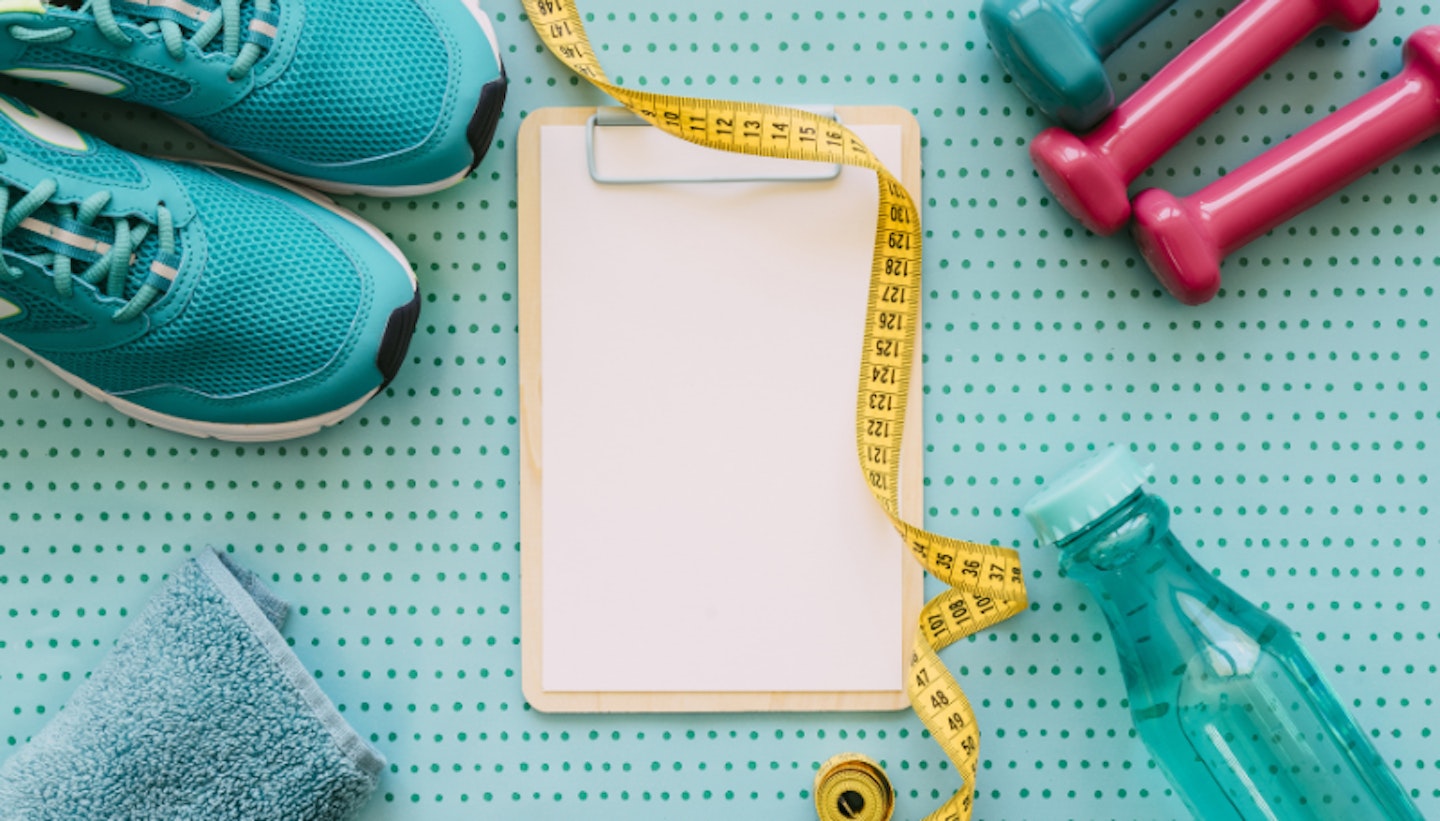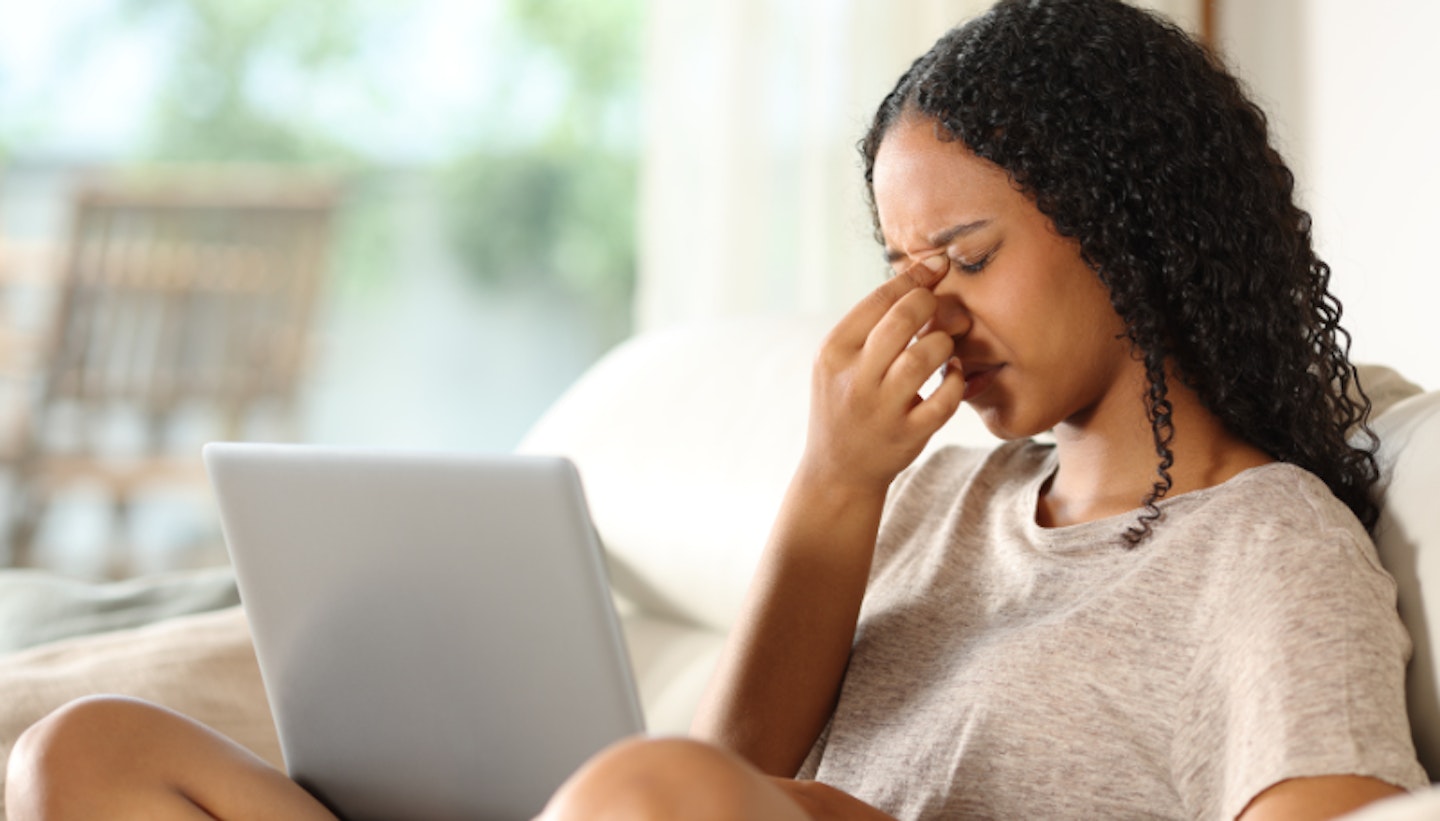That moment of worry when your period is late is something many women can relate to. While pregnancy is often the first thought, sometimes you know that's definitely not the reason. If you're trying for a baby and have a negative pregnancy test, there are a number of causes for a late period.
If you have a missed or late period without pregnancy, most of the time there's nothing to worry about - the more you worry the more you'll work yourself up which won't help either. The NHS recommends that your see your GP if you've missed your period three times in a row.
Other reasons your period is late but you're not pregnant:
1. Miscalculation
Some people’s periods are as regular as clockwork and they know exactly when they are due. If you’re unsure, it may be down to a simple miscalculation. An average menstrual cycle is 28 days but this varies, with some women having shorter cycles and some longer. Your cycle length or regularity may also change as you age. Track your periods with an app like Period Tracker to give you a bit more clarity and understand your cycle better.
2 Birth control

All forms of hormonal contraceptives (the pill, IUD, implants, injections etc.) can mess up your cycle or general flow. If you have used these you might find you have an incredibly light flow or even stop getting a period completely. For some women with bad periods, no longer having them is a godsend, but not if you're trying for a baby.
Popular female app, Flo Health says the first bleed after coming off the pill will be a withdrawal bleed. After this, "ovulation begins again just a few weeks after stopping the contraception. However, for others, it can take several months for the body to start producing the right levels of hormones needed for ovulation."
3. Medication
Certain prescriptions can affect your period. If you have been prescribed medication recently (antibiotics, antidepressants, steroids etc.) or a regular prescription has changed, this might be why your period is late. Similarly, if you're taking prescription medication to delay your period for a wedding, holiday or another big event, it can change your cycle or slow down your flow.
4. Recreation drugs
The use of recreational drugs can have an impact on your period. If you are trying for a baby, using illicit drugs can also contribute to fertility or ovulation issues and problems during pregnancy. The NHS explains that illegal drugs ‘can have a potentially serious effect on your unborn baby’ and if you use them regularly ‘it’s best not to stop abruptly without first seeking medical advice.’
5. Weight loss
Excessive or sudden weight loss can cause periods to stop. If you severely limit the calories you eat it can stop the production of hormones vital for ovulation. The general advice is to see your GP if your BMI is under 18.5 and you are concerned.
6. Weight gain
Similarly, if you gain weight quickly or are overweight you may have issues with your period because you may have too much oestrogen. The excess of oestrogen can also stop the ovulation process. Generally, if you are concerned and have a BMI of 30 or more you should see your GP.
7. Eating disorders
In the same way as weight loss, eating disorders such as anorexia or bulimia can disrupt your hormones and lower oestrogen levels which could prevent menstruation.
8. Poor diet
We've heard the old adage, 'you are what you eat.' So it will come as no surprise that what we put into our bodies can have an impact on our menstrual cycle. If you eat a very poor and unhealthy diet or skip meals regularly this might be the cause. in simple terms, a healthy diet = healthy cycle. So drink lots of water, eat leafy greens, fruit as well as iron and protein-rich foods like chicken, fish and if you're a veggie or vegan then nuts or nut butter or nut-based milk which you can also add to smoothies.
9. Excessive exercise

Exercising in general is great and can do wonders to your body. However, intense or excessive exercise puts our body through stress which can affect the hormones responsible for your period. Professional athletes or dancers often have issues with their periods being disrupted. If you think that could be the cause of your late period, try easing up on the gym. Try more gentle exercise such as yoga or walking, which can also give you a positive hormone boost from getting outside!
10 Just started having your periods
If you’re a teenager and have just started your period, they are often irregular or non-existent for extended periods. It takes time for your body to get used to the process of womanhood, so don’t worry. Just be patient and your body will gradually get into the right rhythm.
11. Sickness
Your body is smarter than you think. If you’re really unwell, with covid, or the flu, your body might decide to skip ovulation or delay it for your own good. So don't be surprised if your period arrives late or not at all during this time. If you have recovered from your illness, then by next month things will be back to normal
12. Stress

We already know that intense exercise puts our body under stress which can affect our period. So, it makes sense that general stress also cause a late or missed period. According to patient.info: "Stress affects the chemical messengers called hormones which are released from your brain. These hormones then go on to affect other hormones released from your ovaries which normally trigger your periods."
Stress comes in many forms and could be caused because of your job, relationships, financial difficulties, life changes or bereavement. Your body will keep you in limbo, holding off on some of your bodily functions until the stress subsides.
13. A change in schedule
If you have a change in your routine such as a new shift at work or travelling, this could play a part in causing your period to be late. If your internal body clock has changed then your body needs time to get used to it. Once you settle into your new routine, your period should resume as normal.
14. Having a baby
If you’ve had a baby recently (congrats BTW) your period will initially become irregular or non-existent. Hormone levels do not go back to normal immediately after birth and the hormones which usually regulate our periods, are less important during this busy time for your body.
15. Breastfeeding
This leads us nicely on to breastfeeding. Breastfeeding mothers begin ovulation after birth much later. If you are breastfeeding exclusively, your periods won't start again until you stop breastfeeding which let's face it, can be a blessing. This simply comes down to the fact that the hormone that causes your body to make breastmilk stops your body making the hormone that controls your periods. According to La Leche League "the more often your baby is breastfed, the later your periods will resume."
16. Thyroid
Your thyroid helps control your menstrual cycle so if you have had or think you may have thyroid issues then this could be affecting your late periods. The Office on Women’s Health explains that if you have too much or too little thyroid hormone then this can make periods very light, heavy or irregular. Thyroid disease also causes Amenorrhea, a condition where your periods stop for several months or more.
17. Polycystic Ovary Syndrome (PCOS)
This hormonal condition affects about 10 million people in the world, according to the Polycystic Ovary Syndrome Awareness Association . People with PCOS typically have non-existent or irregular periods. It is a leading cause of female infertility and is responsible for a number of symptoms that can affect the body physically and emotionally. If you believe this might be the cause of your late period, make an appointment with your GP.
18. Chronic disease
Girls with conditions including Crohn’s, coeliac disease, cystic fibrosis, sickle disease, lupus, diabetes, and others may have irregular menstrual periods or amenorrhea because of low weight, stress, or a flare in their illness’ explains Young Women’s Health.
19. Premature menopause
Early menopause happens when a woman’s periods stop before the age of 45. Premature menopause can be caused naturally by abnormalities, autoimmune diseases or infections. Premature menopause may also be brought on due to cancer treatments such as radiotherapy and chemotherapy or by a hysterectomy (an operation to remove the womb). As well as irregular period other symptoms of early menopause can include:
• hot flushes
• vaginal dryness or discomfort during sex
• difficulty sleeping
• low mood or anxiety
• reduced sex drive
20. Menopause
Traditional menopause is when a woman has not had a period for 12 months or more. It usually occurs in women aged between 45-55. The Menopause Charity says: "Put simply, menopause refers to the time when you stop having periods and can no longer get pregnant naturally." This happens because your ovaries stop producing eggs and, and hormones that produce oestrogen, progesterone and testosterone fall."
Further Questions: Reasons for late period
What to do when periods are late but you're not pregnant?
If you feel well in yourself, then try not to worry. The NHS recommends you should make an appointment with your GP if you've not had a period for three months in a row.
How many days late is a missed period?
In general a period is considered late if it's seven days past when it was due, and you typically have a regular cycle. After 6 weeks, you can consider your late period is a missed period.
About the author: Catriona Watson originally joined the team as an Editorial Assistant to work on the 2019 M&B Awards. As digital writer she has written and updated hundreds of articles on the site from medical explainers to celebs news and shopping galleries.
Follow Mother & Baby on Instagram for relatable memes, inspiring stories and parenting hacks!
